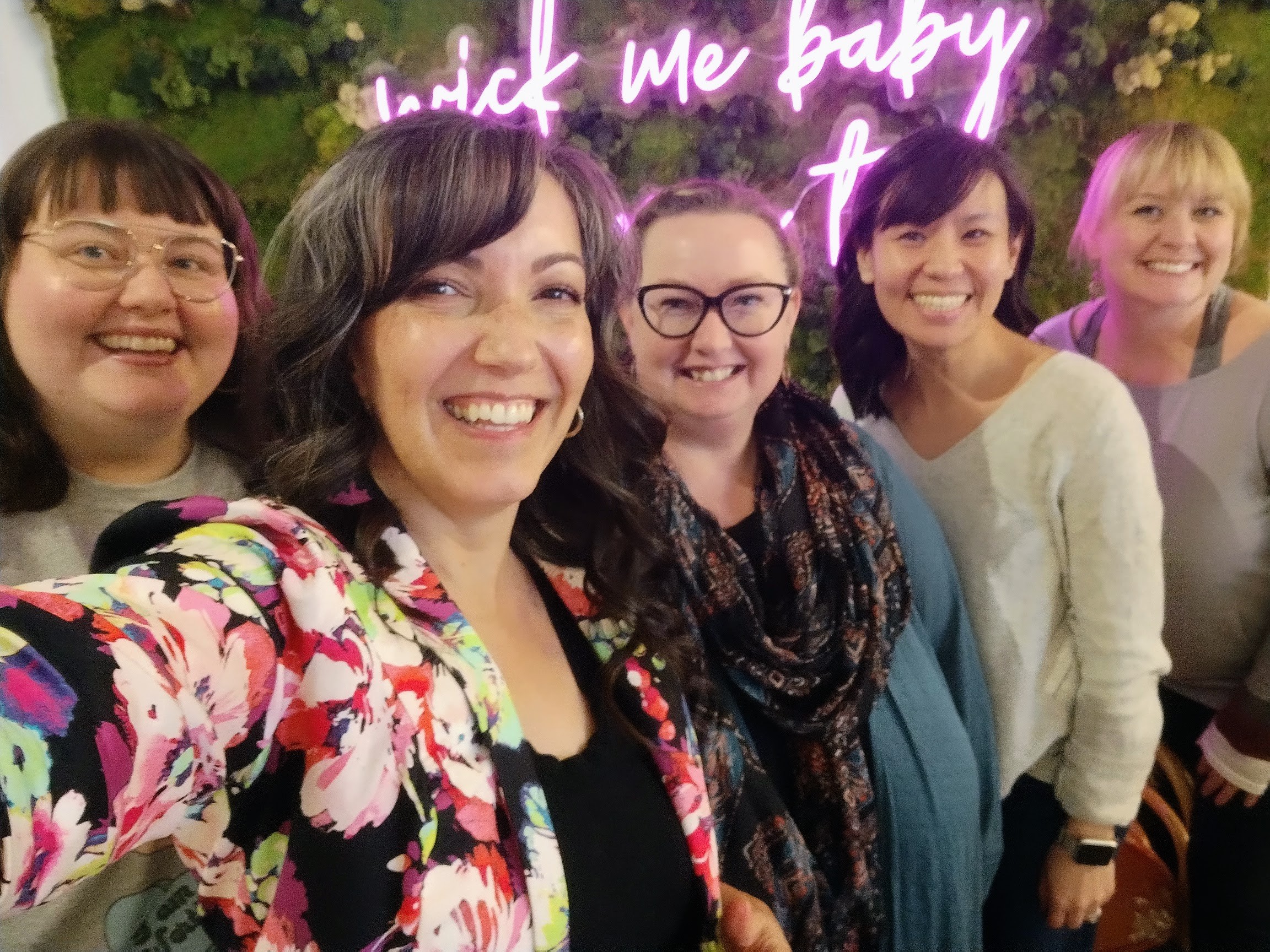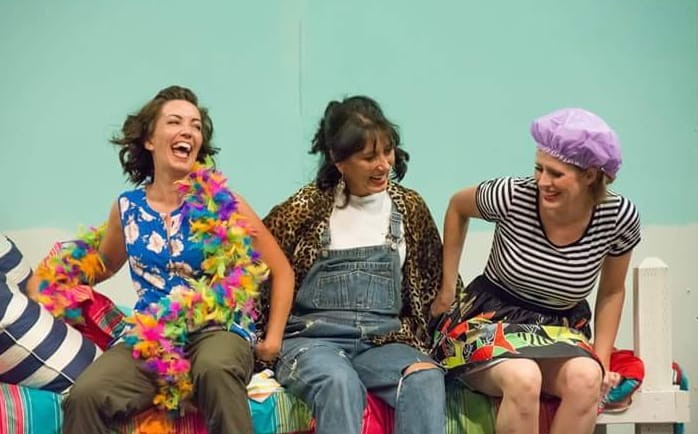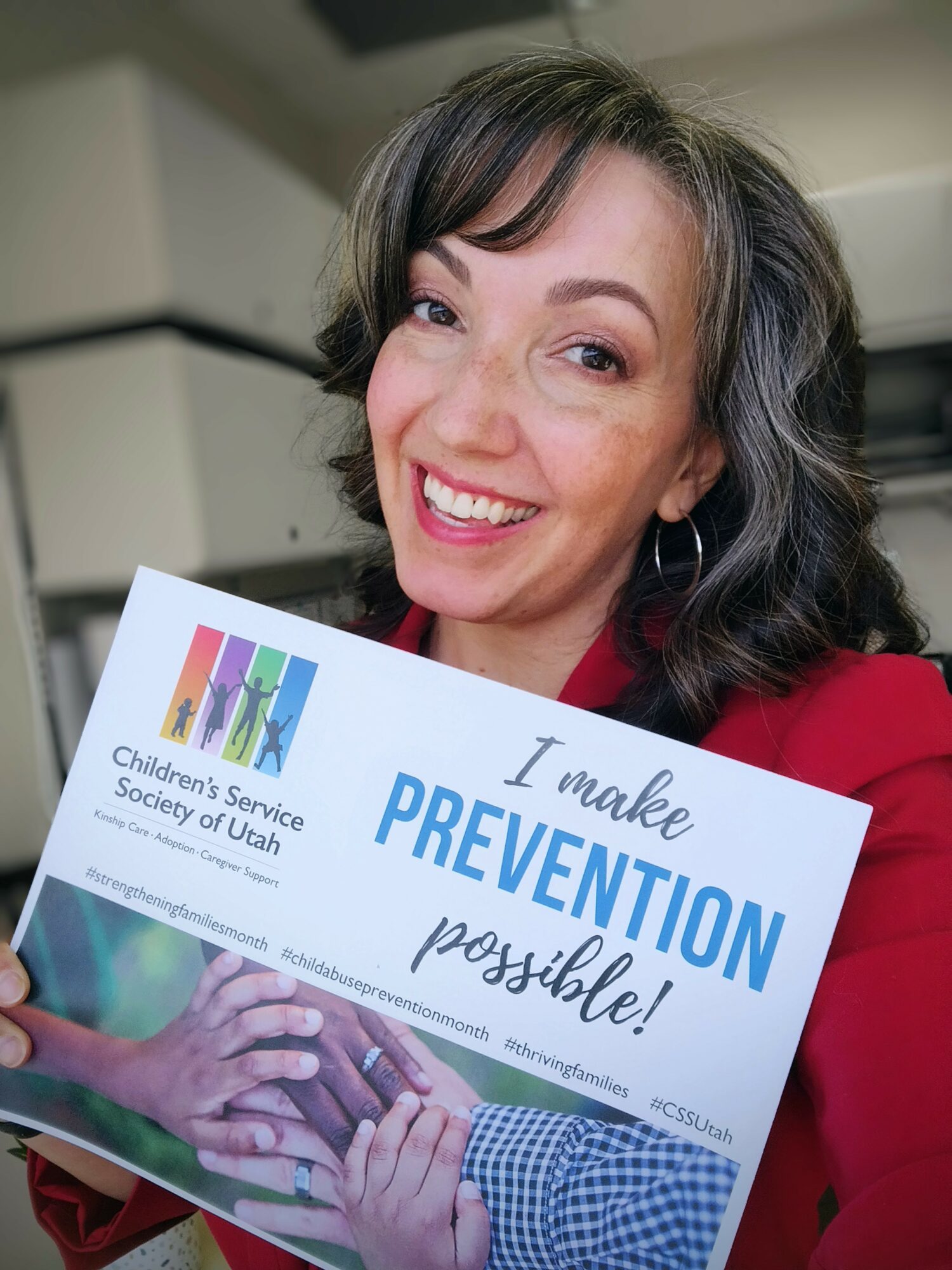 Today we’d like to introduce you to Becky Davis.
Today we’d like to introduce you to Becky Davis.
Hi Becky, can you start by introducing yourself? We’d love to learn more about how you got to where you are today.
I started working at The Children’s Service Society in 1998 when I was only 20 years old and had very little work experience.
Even though we didn’t have the internet in the office yet (Can you imagine!), and I was taking messages with a pen and paper because we didn’t even have voicemail yet, it felt very glamorous to me to be working downtown, answering phones and setting appointments and such.
I soon began assisting with the legal documents for the adoptions we facilitated, and as I typed up the adoption paperwork on a typewriter (I am not even kidding about that), I was so proud to be able to say that I had a job that helped people. So proud that I stayed and stayed, sustained by a sense of service and accomplishment and a love of the humanity of it all. A couple of years here turned into five, and then into ten. And here I am still. This year I celebrated my 25th anniversary with the Children’s Service Society. I went from running the front desk to running our Connections program, which is a confidential intermediary program to help adult adoptees who would like to make contact with their birth parents.
We’ve always received a lot of calls from people who were adopted through our agency and were looking for information about their origins, and since the beginning, I’ve always been very interested in their stories. I loved to talk to them, and I got a sense of how desperate many of them were for any little bit of information we could provide about their history, their birthparents, and their past. At first, I was only able to pass those calls on to one of our caseworkers, but early in my career, I took over handling all the post-adoption requests because the caseworkers were generally too busy, and I loved it. We’re not allowed by Utah law to provide identifying information about a person’s birthparents to them, and so we can’t just outright give these inquiring adoptees the names of their birthparents, but I always try to provide them with as much information as I’m legally able to.
One day, we had a woman in the office who was adopted 60 or so years before, who asked to see the relinquishment document her birthmother had signed to release her for adoption. This woman had hired a private investigator years ago because we couldn’t give her her birthmother’s name, and this PI did indeed identify her. Unfortunately, her birthmother had died at a young age and she never got a chance to learn much more about her. She came to us so desperate for any link to her birthmother that all she wanted was to inspect the document so she could see what her handwriting was like, and to hold something she had held. We were all very touched by how deeply she felt, and we started talking about how we might be able to better help people like her.
Around this same time, I had gotten into genealogy with my mom. We were having a lot of fun tracing our ancestry, and feeling very fulfilled to know our history– which was a stark contrast to the many adoptees I had worked with, who knew nothing of theirs– and I found that I had a knack for not only finding deceased relatives but also living cousins. The director of CSS at the time and I had many conversations about using this skill of finding someone with very little information to begin with, to help adoptees wanting to find their birthparents.
We consulted with attorneys, other agencies, the Office of Licensing who oversaw our adoption program, and many adoption professionals. In the end, we created a program that held to Utah law of not releasing any names to the adoptee but could help facilitate a reunion if both adoptee and birthmother consented. If we were to act as a confidential third party to locate a birthparent and ask them if they are interested in meeting their long-lost child and if we had both parties sign affidavits of consent, we could put them in touch with each other. In 2001, our Connections program was born and I was overseeing it all.
Since then, I’ve been part of over 250 reunions. Each one is special, each one is emotional, and each one still makes me nervous when I make that first phone call! I have been so privileged to see the wonder and delight in both the adoptee and the birthmother’s eyes, as they look at each other and see themselves reflected. They simultaneously laugh and cry as they compare the same bony fingers, the same crooked smile, the same way of walking; and they are overwhelmed when they realize genetics has such a profound impact on so many aspects of their lives.
I’ve had countless adoptees thank me for helping to fill the hole in their hearts that came from not knowing their history; and just as many birthmothers who tell me how healing it is to finally know what became of their baby. I feel humbled by each one because I have learned this is sacred work and I am such a small part of it. I am so grateful that we found a way to offer this service. 25 years is a long time to work at the same place, but I found a job that makes me feel like I’ve found my purpose in life. Why would I leave that?
Would you say it’s been a smooth road, and if not, what are some of the biggest challenges you’ve faced along the way?
One of the hardest things I face in my work with the Connections program is when I contact a birthparent and they do not want to meet their biological child. It is heartbreaking, and I hate more than anything having to go back to my clients and let them know the bad news.
So many of these adoptees already have issues with feelings of abandonment and self-worth as a result of their adoption, even despite having wonderful and loving adoptive parents, so to have to tell them that the answer is no feels like I am slapping them in the face. I try my best to prepare people beforehand, to make sure that they have a support system, and to help them have realistic expectations. But thinking about that conceptually and experiencing rejection are very different things. I have cried more over these cases than just about anything else.
I’ve also had a steep learning curve to understand all the different experiences that birth parents have gone through. Some became pregnant as a result of rape. Some felt forced into the adoption by parents or religious leaders. Some never told their current spouse or children about the adoption, and fear the backlash if that secret gets out. As we first began this program, I had naively thought that all birth parents would happily accept a reunion if given the chance. Learning otherwise was a hard lesson. Learning how to make a cold call not knowing what situation or feelings were on the other end of the line has been hard.
Another struggle has been the advent of commercial DNA testing. I used to do 10 reunions in a year, now I do just a handful because so many people have been able to use DNA testing to find biological family. I am happy that this technology has been helping so many people to find the answers they seek, but there are pitfalls to navigating that first contact and I am sad to see so many people just jumping in without any preparation. Reunions can be ruined before they even have a chance to begin by the way so many people approach finding family through DNA matches.
And on the same note, a similar struggle has been to learn this new field of science. There is a way to find out who unknown birth parents are through DNA matches, even if your closest match is only a 3rd cousin, but it takes a lot of work! I don’t have to use it often since I have the records that include names, but I’ve done a few cases now without names or with unnamed birth fathers. DNA tech is a lifesaver for these! But it’s not for the faint of heart.
Alright, so let’s switch gears a bit and talk business. What should we know?
The Children’s Service Society of Utah is the oldest non-denominational nonprofit organization in the state. It was founded in 1884 by society women who wanted to solve the problem of children being left unsupervised while their parents went to work. They were interested in this new idea of “kindergarten” that had been brought to the states by German immigrants and sent back east for a Kindergarten teacher who could help them bring the tradition to Utah families. The agency began as a day nursery, but soon after a baby was left on the doorstep and the need for an orphanage/adoption services became clear. We have been facilitating adoptions ever since, and have helped thousands of families and children. Over the years the services and programs have expanded to meet many different kinds of needs in our community.
What sets us apart from other adoption agencies is that we are not just an adoption agency. We are a social service agency, and we have several different programs for families and children. In addition to our adoption program, which serves pregnant women and families who are interested in adopting an infant, families wanting to adopt older children in state custody, and provides mental health counseling to anyone touched by adoption, we also offer 4 other programs: 1) Care About Childcare helps families to find quality childcare that meets their needs, as well as trains childcare providers, to become licensed and to offer the best care. 2) Building Blocks Childcare Center, which we use as a model for training childcare centers and provides free or low-cost childcare to underserved families. 3) Home Visitation, which pairs parents with a Parent Educator who will come into their home to offer bi-monthly personal visits where they share child development and parenting information, screenings to assess the child’s overall development as well as health, hearing, and vision, and resources to link families to other community services. 4) GRANDfamiilies, a support, advocacy, educational, and crisis intervention program for families that are caring for a relative’s child.
I am incredibly proud of the way our services can wrap around a family in need. For example, if an expectant parent comes to us considering adoption for her baby, of course, we can help her with that. But if she chooses another alternative, we don’t have to cease our services to them. If she chooses to have her parents or another relative be the child’s caregiver, we can refer her to GRANDfamilies. If she decides to parent the child, we can refer her to Home Visitation and our childcare programs. This means we are truly able to offer her non-coercive options counseling around the pregnancy because we are not invested in only adoption, we can be invested instead in meeting the needs of the child in the way that she decides is best for her and the baby no matter what.
I also love that we offer an adult adoptee support group, and I’d like the community to know about it. There are many, many services out there for adoptive families, and quite a few for birth parents. But there are very few supports for adoptees. They are the party that had no choice in the adoption– they didn’t choose to be relinquished, they didn’t choose who adopted them, they didn’t choose how many contacts, if any, they got to have with their birth family, and they didn’t write the laws that now prevent them from having any access to their adoption records. They can feel disenfranchised, along with a host of other mental health challenges that are specific to adopted people– and yet, society almost always expects them to be grateful for their adoption.
Adoption should always be first and foremost about the child, and not allowing adoptees a voice feels like it is violating that directive. An adult adoptee support group is a way we can help adoptees celebrate their unique situations, but also provide a safe place for them to talk about the downsides to adoption that they may have experienced. They can share the ups and downs alike. This support group is held the 2nd Wednesday of every month from 6-7:30 pm, at our office or on Zoom for those who need that. And starting in January of 2024, we will be offering an adoptee support group specifically for teenagers.
Is there something surprising that you feel even people who know you might not know about?
On a personal note, I have had a surprising lot of individual growth and activity over the last 25 years. I married just 3 days after my 20th birthday, and did as so many women have done: I abandoned college for my husband’s education and career. I’ve done remarkably well with no education, but finally at age 46 I have concluded that it’s high time I went back. I just started classes again, aiming for a degree in graphic design.
I also have two kids on the autism spectrum, which is a whole other story of hardship and growth; but I credit my kids for shaping me into the person I am today. I have been involved in community theater since high school, and about once a year I will take to the stage and live out someone else’s life set to music. I have a couple of side jobs, moonlighting as a professional genealogist with a specialization in English research for Universal Genealogy Center, and also as a character and face painter for Part of Your World Princess Parties. And in any spare time I have left I’m always teaching myself a new hobby. My philosophy is, “Have a tiny adventure every day.”
Professionally, for the Children’s Service Society as an agency, I think it’s surprising to people that we exist at all, let alone for the last 139 years. Our name is very generic and doesn’t give people a good idea of what we do, and so outside of our community partners who work with us regularly, the general public doesn’t know who we are. I’d like that to change!
Contact Info:
- Website: https://cssutah.org
- Instagram: https://www.instagram.com/cssutah/
- Facebook: https://www.facebook.com/ChildrensServiceSociety
- Youtube: https://www.youtube.com/@childrensservicesocietyofu970






















